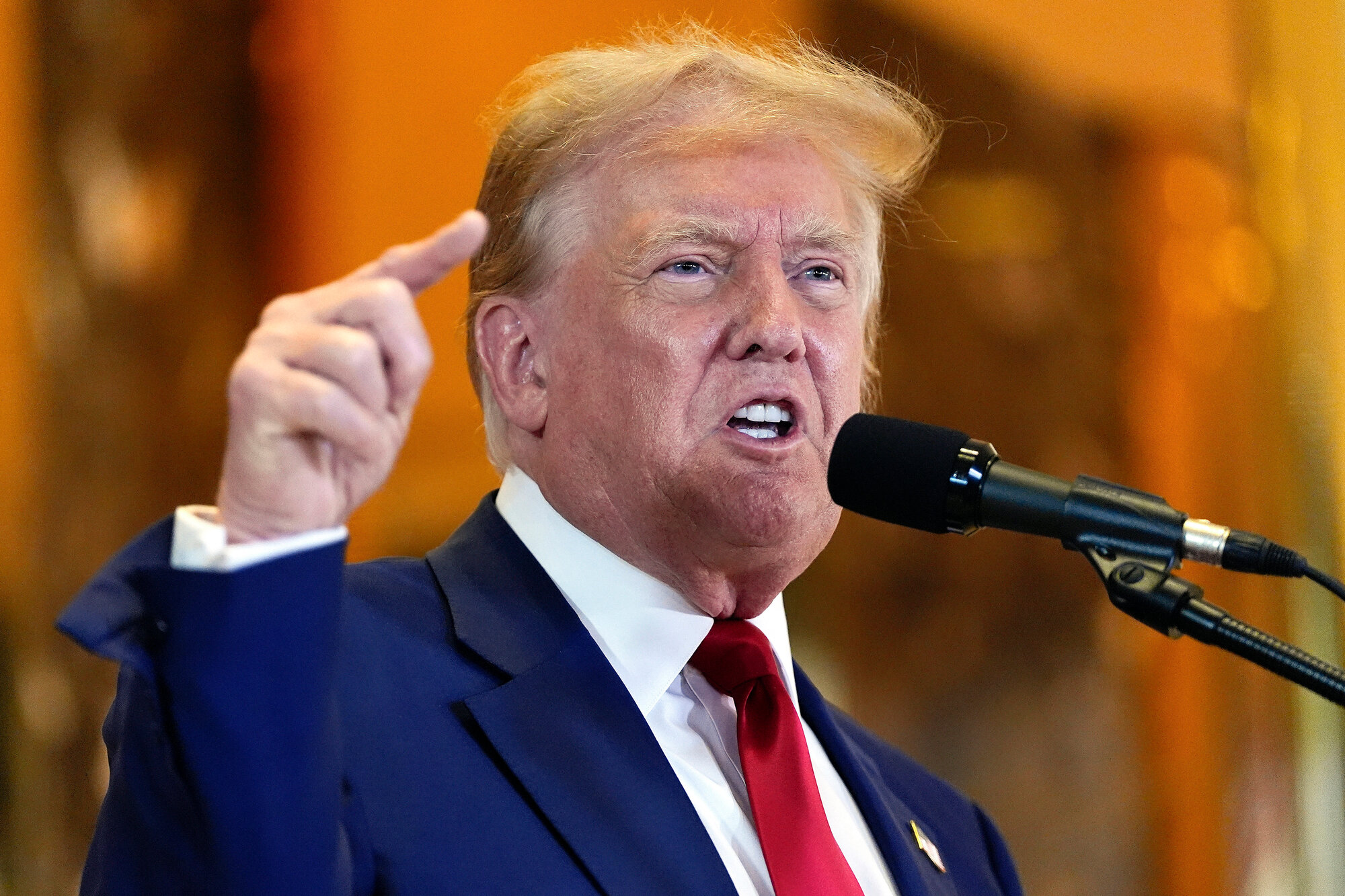Judge delays Trump's hush money sentencing until at least September after high court immunity ruling
Associated Press
Former President Donald Trump's sentencing in his hush money case has been postponed until at least September after the judge agreed Tuesday to weigh the possible impact of a new Supreme Court ruling on presidential immunity.
Trump had been scheduled to face sentencing July 11 on his New York conviction on felony charges of falsifying business records. He denies any wrongdoing.
The postponement sets the sentencing for Sept. 18 at the earliest — if it happens at all, since Trump's lawyers are arguing that the Supreme Court ruling merits not only delaying the sentencing but tossing out his conviction.
The new date is well after this month's Republican National Convention, where Trump is set formally to accept the party's nomination for president in this year's race.
September, however, is far closer to Election Day, which could put the issue top-of-mind for voters just as they seriously tune into the race.
There was no immediate comment from Trump's campaign or Manhattan prosecutors, who brought the case.
The delay caps a string of political and legal wins for Trump in recent days, including the Supreme Court's immunity ruling and a debate widely seen as a disaster for Democratic President Joe Biden.
The immunity decision all but closed the door on the possibility that Trump could face trial in his 2020 election interference case in Washington before this November's vote. The timeline in itself is a victory for the former president, who has sought to delay his four criminal cases past the balloting.
An appeals court recently paused a separate election interference case against Trump, in Georgia; no trial date has been set. His federal classified documents case in Florida remains bogged down by pretrial disputes that have resulted in an indefinite cancelation of the trial date.
Monday's Supreme Court ruling granted broad immunity protections to presidents, while also restricting prosecutors from citing any official acts as evidence in trying to prove a president's unofficial actions violated the law.
Hours after it was issued, Trump's attorney requested that New York Judge Juan M. Merchan set aside the jury's guilty verdict and delay the sentencing to consider how the high court's ruling could affect the hush money case.
Merchan wrote that he'll rule Sept. 6, and the next date in the case would be Sept. 18, "if such is still necessary."
In their filing Monday, defense attorneys argued that Manhattan prosecutors had placed "highly prejudicial emphasis on official-acts evidence," including Trump's social media posts and witness testimony about Oval Office meetings.
Prosecutors said before the judge's decision Tuesday that they believed those arguments were "without merit" but that they wouldn't oppose adjourning the sentencing for two weeks as the judge considers the matter.
Trump was convicted May 30 on 34 counts of falsifying business records arising from what prosecutors said was an attempt to cover up a $130,000 hush money payment to porn actor Stormy Daniels just before the 2016 presidential election.
Daniels claims she had a sexual encounter with Trump in 2006 after meeting him at a celebrity golf tournament in Lake Tahoe. Trump has repeatedly denied that claim, saying at his June 27 debate with Biden: "I didn't have sex with a porn star."
Prosecutors said the Daniels payment was part of a broader scheme to buy the silence of people who might have gone public during the campaign with embarrassing stories alleging Trump had extramarital sex. Trump's former lawyer Michael Cohen paid Daniels and was later reimbursed by Trump, whose company logged the reimbursements as legal expenses.
Falsifying business records is punishable by up to four years behind bars. Other potential sentences include probation, a fine or a conditional discharge which would require Trump to stay out of trouble to avoid additional punishment. Trump is the first ex-president convicted of a crime.
More Articles to Read

